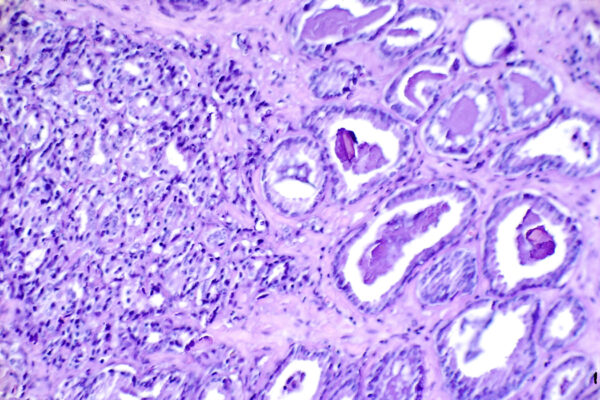
The promise of therapies that activate and redirect T cells to attack tumors has been stymied by lack of efficacy or unacceptable toxicity. Such therapies have also had a hard time treating solid tumors. Janux Therapeutics’ technology is designed to overcome those limitations. Interim Phase 1 data for two programs are lending validation to the biotech’s approach.
The results are early and more testing is needed. But one analyst says the data so far indicate that Janux’s lead program has blockbuster potential. Shares of Janux more than doubled at the market open Tuesday. The biotech’s share price continued its climb throughout the day before closing at $49.75, a 229% increase over Monday’s closing price. The company is now using the rise in stock price as an opportunity to raise about $175 million through a stock offering.

With the Rise of AI, What IP Disputes in Healthcare Are Likely to Emerge?
Munck Wilson Mandala Partner Greg Howison shared his perspective on some of the legal ramifications around AI, IP, connected devices and the data they generate, in response to emailed questions.
Janux’s drugs belong to a class of therapies called T cell engagers. With one part that binds to a target on a T cell and another part that binds to a target on a tumor, the therapy brings the two cells together so the immune cell can kill the cancer cell. One challenge for T cell engagers is that toxicity develops when these systemically circulating therapies hit targets that are also found on healthy tissue.
San Diego-based Janux calls its platform Tumor Activated T Cell Engager, or TRACTr. This technology designs a T cell engager with a “mask” that inhibits activation of the immune cell in healthy tissue. These masks stay in place with peptide linkers removable only by enzymes found at the site of a tumor. Each therapy also includes a component that extends its half-life.
Janux therapy JANX007 is in development for metastatic castration-resistant prostate cancer. In updated results from a Phase 1a dose-escalation study reported late Monday, as of the Feb. 12 cutoff date, 14 of the 18 participants who received a starting dose of 0.1 mg achieved PSA30 declines, which means at least a 30% decline in blood levels of the prostate specific antigen (PSA) that is elevated in men with prostate cancer. In the cohort that received a starting step dose of 0.2 mg, all six subjects achieved PSA declines of 30% and five of six achieved 50% declines.
The higher 0.2 mg dose drove a deeper and more durable response, including one patient who achieved 90% decline in PSA. This response was achieved without compromising safety. T cell engagers can spark a complication called cytokine release syndrome. Janux said no cases of this complication higher than Grade 2 were observed in the Phase 1a trial.
William Blair analyst Matt Phipps acknowledged the small number of patients in the study. But in a research note, he said the Janux therapy’s level of activity is “clearly significant and above relevant benchmarks in such heavily pretreated patients.” He added that tests of how the drug moves throughout the body detected the cleaved half-life extension domain but did not detect the active T cell engager in the periphery, a finding that has been consistent across treatment groups.
“We believe this is a key data point validating the TRACTr platform and the ability to achieve cleavage of the molecule across patients,” Phipps said.
The results increase this program’s chances of success, Phipps added. If it’s approved, the firm estimates peak sales could reach $1.5 billion in patients whose metastatic prostate cancer does not respond to chemotherapy. If JANX007 can move into earlier lines of treatment, this therapy offers multi-blockbuster potential, he said.
Janux also reported preliminary data for JANX0008, which is being tested in heavily pretreated patients whose solid tumors express high levels of a protein called EGFR. This Phase 1a study includes patients with colorectal cancer, squamous cell carcinoma of the head and neck, non-small cell lung cancer (NSCLC), and renal cell carcinoma.
As of Feb. 12, Janux said 11 participants across all four tumor types have been enrolled. In one patient whose NSCLC was treated with JANX0008, Janux reported a confirmed partial response with 100% reduction of the target lung lesion and elimination of liver metastasis. No cytokine release syndrome or treatment related adverse effects were reported. In addition, one patient with renal cell carcinoma experienced a 12% reduction in size of a large cancerous mass as well as significant clinical benefit. This patient experienced cytokine release syndrome classified as Grade 1.
Janux is continuing dose optimization of the prostate cancer therapy, which is expected to have its next data update in the second half of this year. Dose escalation and optimization is also continuing for the test of the solid tumor therapy.
Public domain image via the National Cancer Institute














